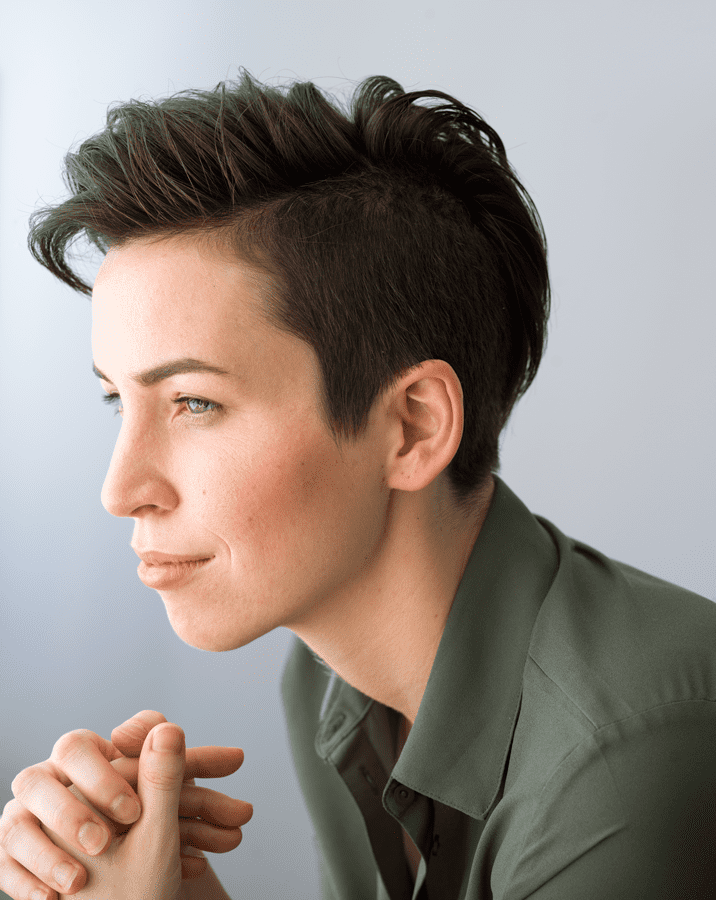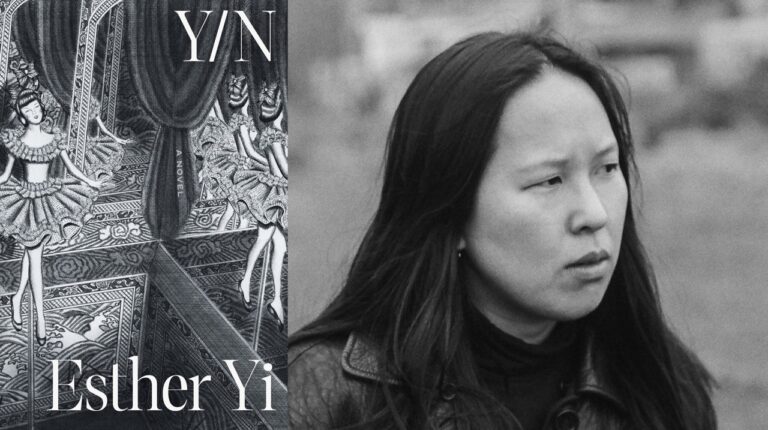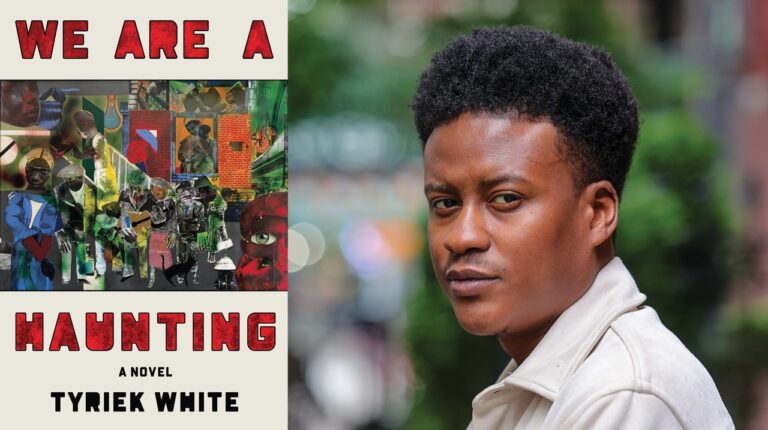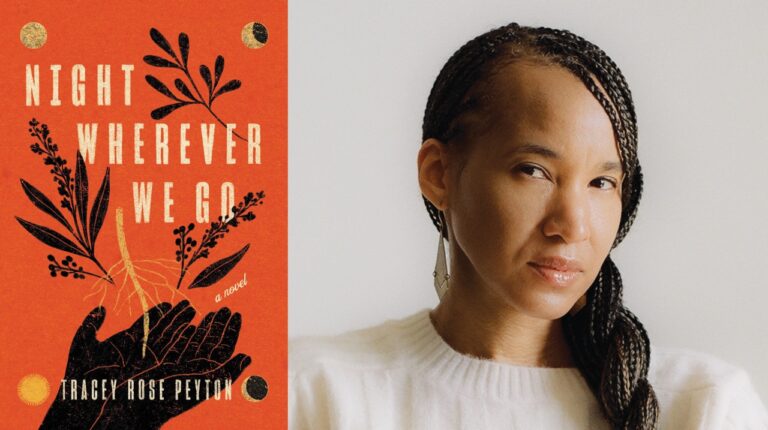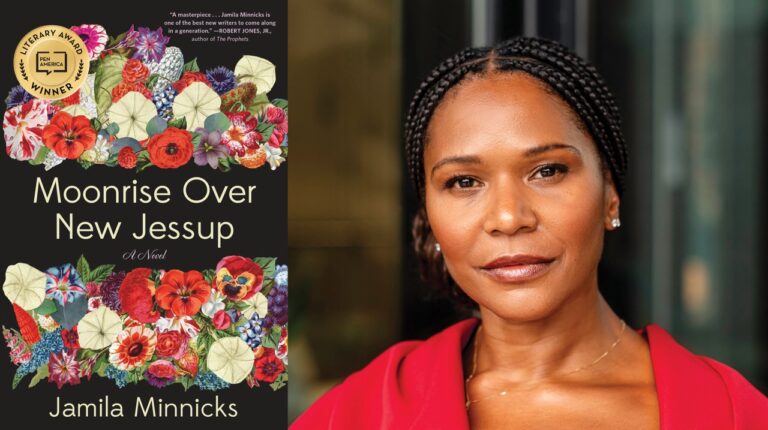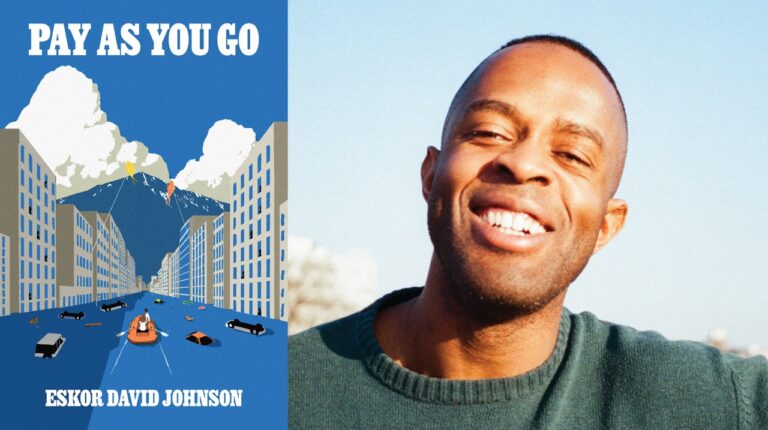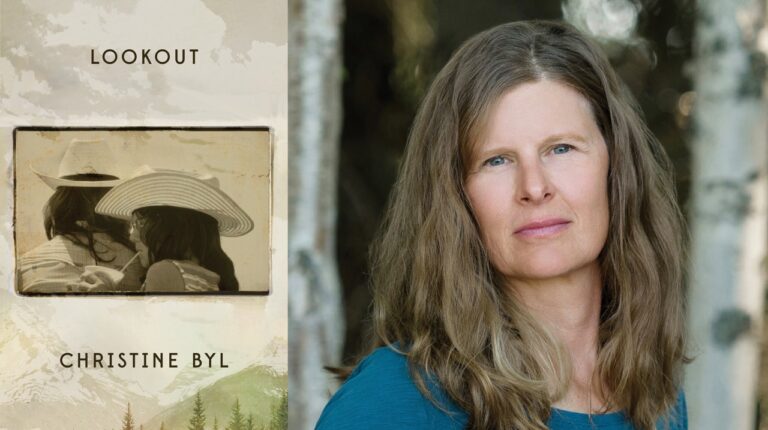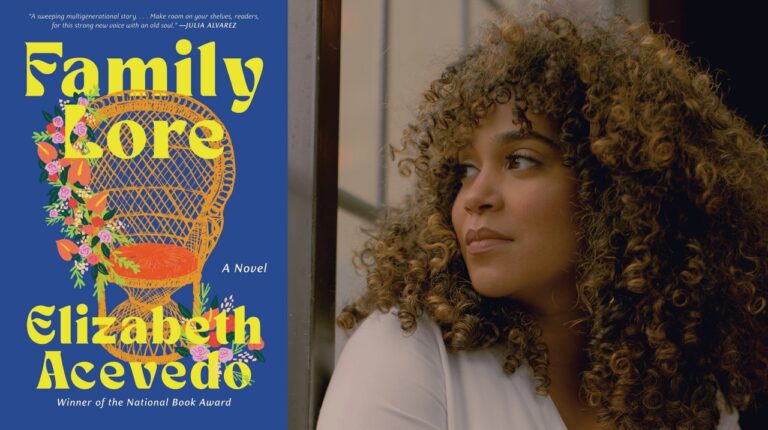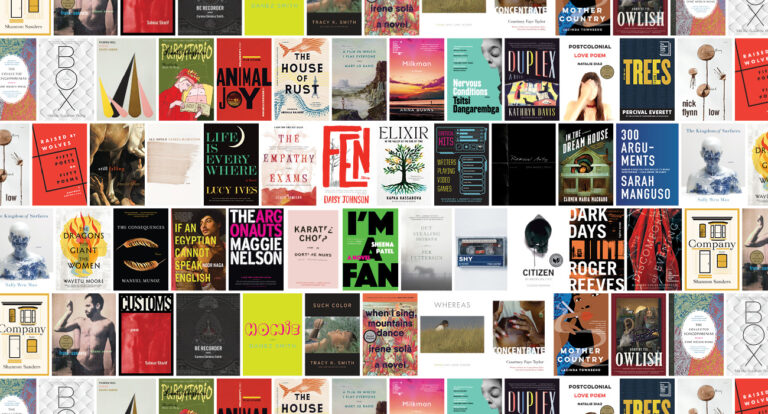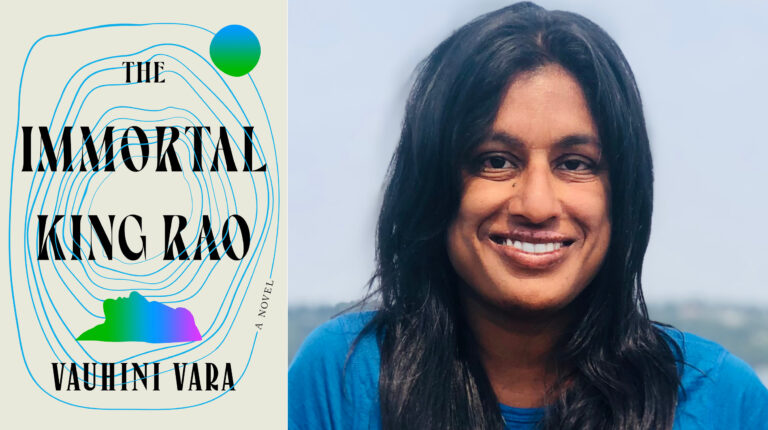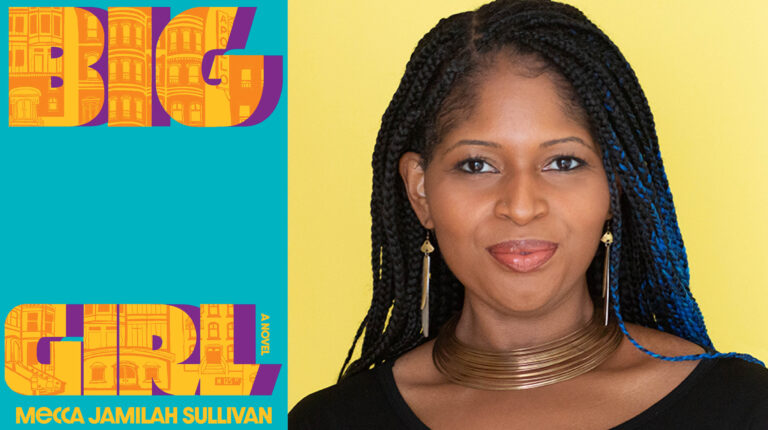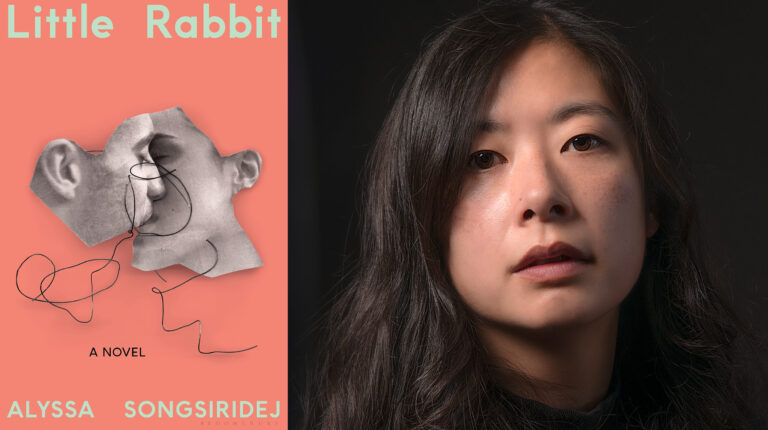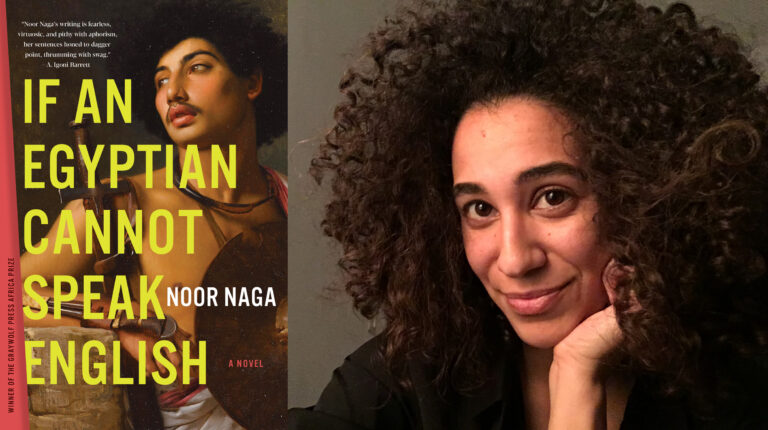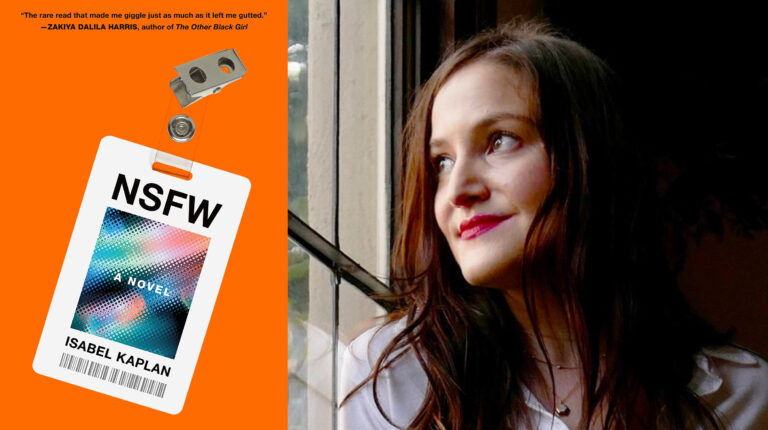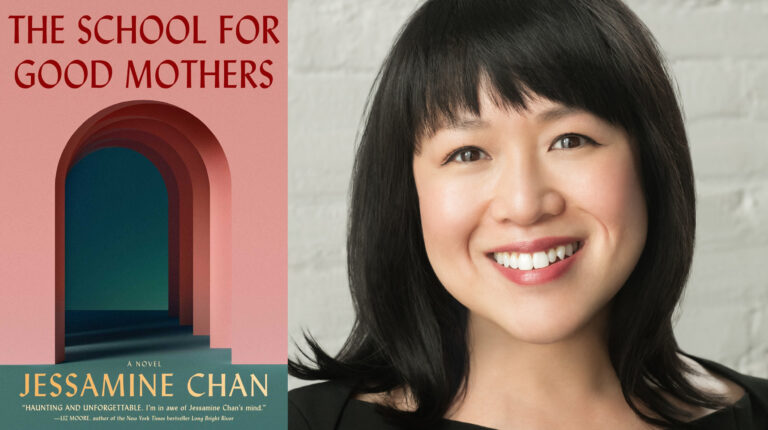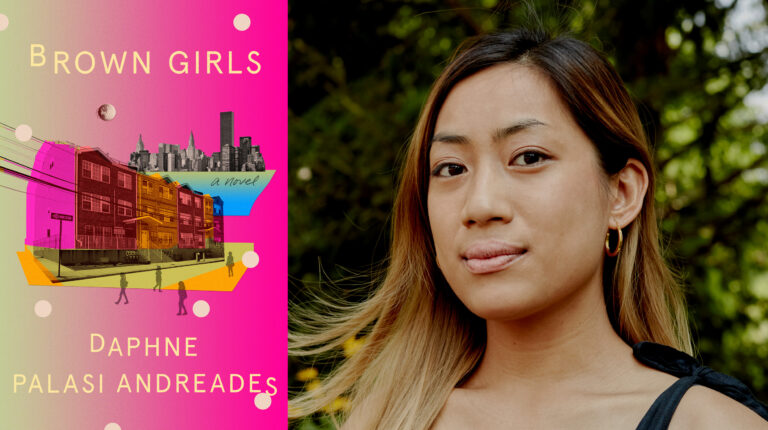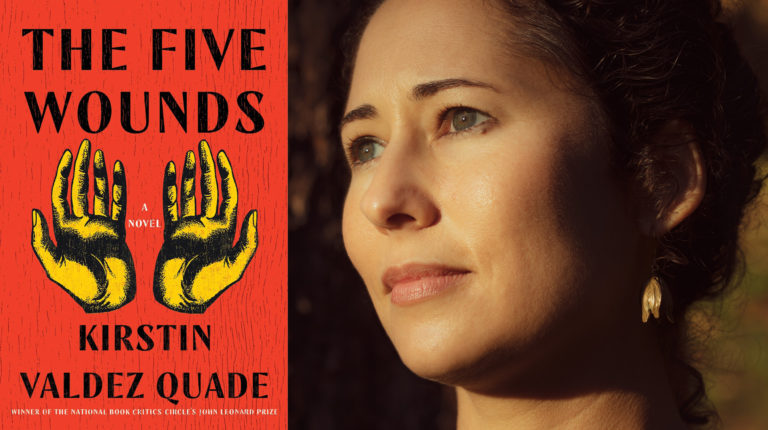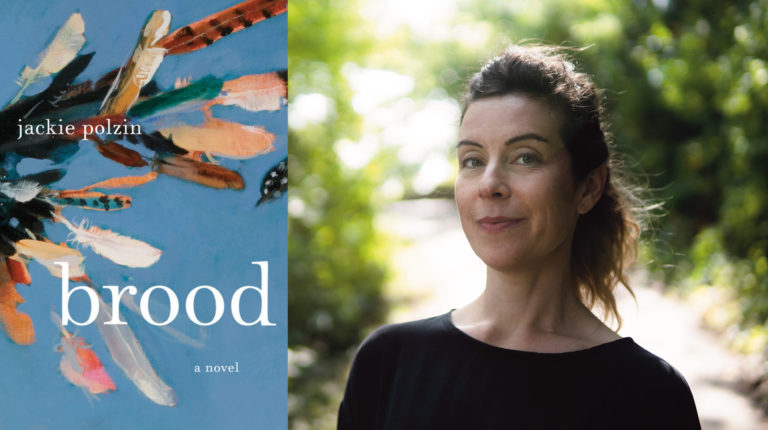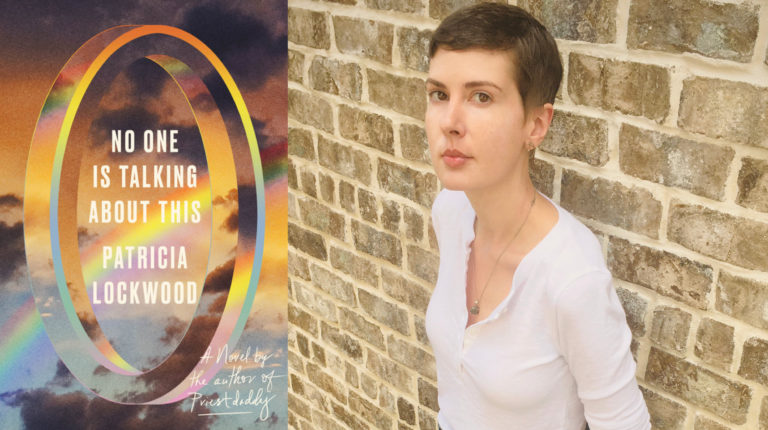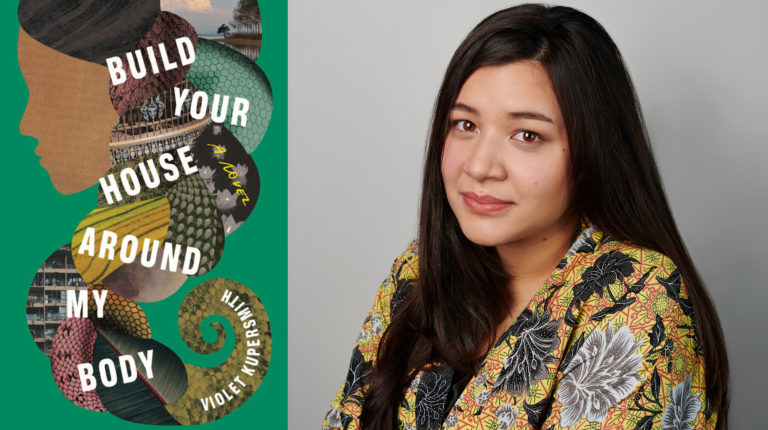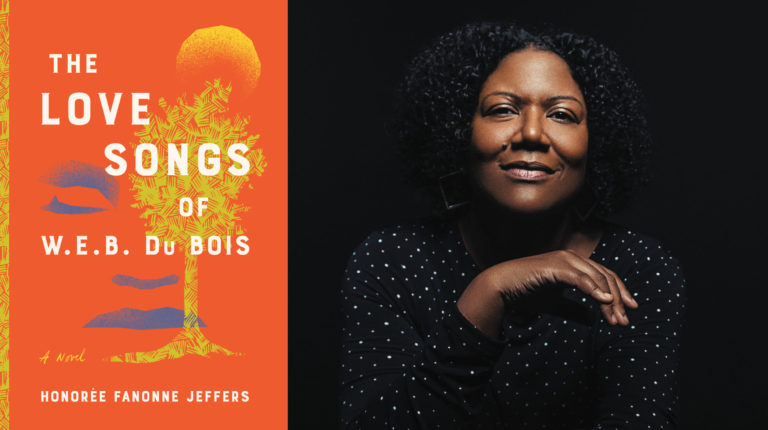Julia Phillips, whose debut novel Disappearing Earth was shortlisted for our 2019 First Novel Prize, discussed her work with the Center’s Executive Director, Noreen Tomassi. Recently released in paperback, Disappearing Earth explores the lives of women and girls in a tightly knit Russian community after the disappearance of two young sisters.
(Reads) From the passenger seat, Alyona took the man’s features apart. A wide nose, and a mouth underneath that matched. Short brown eyelashes. Round chin. His body looked carved out of fresh butter. He was too heavy, probably. That must be why he had stepped clumsily on the shore. “Do you have a girlfriend?” asked Sophia. He laughed and shifted gears, accelerating up a hill. The car hummed underneath him. The bay drew away behind. “No, I don’t.” “And you’re not married.” “Nope.” He lifted his hand, fingers spread, to show. Sophia said, “I saw already.” “Clever thing,” he said. “How old are you?” “Eight.” He glanced in the rearview mirror. “And you’re also not married, am I right?” Sophia giggled.
Alyona turned to watch the road. His car was taller than their mother’s sedan. She could look down on roof racks and along the pink lines of drivers’ arms. People were sunburned after this one day of good weather. “Can I put the window down?” she asked. “I prefer the air-conditioning. Straight through this intersection?” “Yes, please.” The trees along the sidewalks were fat and green from this rainy summer. They passed ragged billboards on their left and concrete-paneled apartment buildings on their right. “Here,” Alyona said. “Here. Oh.” She twisted in her seat. “You missed the turn.” “You missed the turn,” Sophia said from the back. “I want to take you to my place first,” the man said. “I need a little more help.”
Thanks so much, Julia. I have so many questions about your process as a writer, the issues you encountered in writing a debut novel. But let’s begin by talking about how the ideas for Disappearing Earth originated. I know that you were in Russia in this area as a Fulbright scholar . . .
Yes, I went to the Kamchatka Pennisula, which is in Eastern Russia on the Bering Strait, specifically to research a book, although I didn’t know what the book would be about. And I spent the year that I was there from 2011 to 2012 looking for a subject. And what I found ended up becoming Disappearing Earth.
When you were looking for a subject, did you also have in mind that it would be a novel? Did these originally start as stories and then evolve into a novel? Or did you have in mind that it would be a novel, and a somewhat unconventionally structured one, from the outset?
I was looking the other day at my original Fulbright application, which was from 2009, and I had proposed an interlinked collection of stories. So, I intended that it would be a work of fiction with a wide scope, that it would have many different subjects and stories, but all connected to each other. That was always the goal. I wanted to write about as many people and places and experiences on the peninsula as I could possibly fit into one book.
The more I worked on the manuscript, the more I began to feel that the chapters were linear, that one happens right after the other. The fact that so many of the characters know each other, along with this central thrust of the girls going missing, made it more cohesive than even an interlinked collection of short stories. So it became a novel for me and a publisher bought it as a novel. They put “A Novel” on the cover, thank goodness.
I want to underscore that the novel begins with the disappearance of two young girls, but what is also really significant about this is that this takes place in this strange landscape, sparsely populated, volcanically active, subject to tsunamis, and also with an area where there’s quite a bit of difference and tension between the indigenous people there and the ethnic Russians. So, I wonder if you’d talk a little bit about the very strange landscape and social milieu that Disappearing Earth takes place in.
It really is a fascinating and beautiful place, one that looms large in the imaginations of Russians, and others around the world who find out about it. It was so isolated during the 20th century and it’s a relatively recently colonized area of Russia. And it is so geothermally active and geographically stunning. It’s a very, very interesting place, and very itself, not like other places in the world. I went there as a Russophile, someone who’d been studying Russian for a long time, and someone who was eager to spend more time in Russia in general and learn so much more about it.
When I went to the Kamchatka Peninsula, I found so many similarities between this place, which was totally itself and which had a unique history in the world, and the place that I had come from and the place I knew best, our own country. The history of colonization, that history of white supremacy, of the patriarchy that exists, the ethnocentrism and the nationalism that are so present in contemporary Russia are also, of course, so present in contemporary America and very much affect the ways that we, as Americans, form relationships with others and think about each other and build our communities.
And so, in writing about life there I found I was also trying to write about where I was from and process that experience. And, certainly, with the title of the book, I wanted to refer to, in the first chapter, the story of a tsunami that hit the region and sweeps away so much. And only a couple pages later, the two girls are also swept away by something outside their control, something they didn’t anticipate.
I wanted the title to refer quite directly to that tsunami, but also more generally to a sense of unsteadiness and instability, that the characters in this book are building their lives on unsteady ground. I wanted the title to speak to that sense of unease.
And the reader feels that—that everyone in the novel is on unsteady ground, but especially the One of the things you did so successfully is to make me feel – and I hope all readers feel this– that women deal with sexual violence and predators and lack of opportunity, et cetera, not only in this remote place, but elsewhere as well.
You did that very successfully, and I wonder about that theme that is in every single chapter, the theme of how to be a woman in the world. Could you talk a little bit about that?
It makes me so happy that you say that, because what you’re saying aligns completely and very excitingly with what I hope that readers will get out of it, though every reader’s experience of it will be different, of course. The book is constructed is so that it begins with this disappearance of these two young sisters, and then moves month by month, chapter by chapter, through one year and as their disappearance is investigated.
And each chapter, each month, focuses on a different girl or woman in that community. I constructed it this way because I wanted to explore the range of harm in women’s lives and make the argument that the ways that women experience violence or pain or marginalization or oppression is on a spectrum. Some people’s pain is very visible given, for example, news headlines, though in fact the abduction of two girls by a stranger is statistically very unusual. And yet, it’s given a lot of attention in ways that are shaped by the girls’ identity, and feeds into cultural narratives and tropes that are exciting and advantageous for those in power. At the same time, there are also women who are experiencing harm that is ignored or accepted as commonplace. For me, those two things are connected, that to live in a culture in which we are experiencing small violences all the time, or hurting others in small ways all the time, lays the foundation for and perpetuates those more enormous acts of violence.
In recognizing that and making those connections, we can then begin to address those things, so that it is not possible, for example, for a community to say, we’re going to stop these enormous violences, or we’re going to make sure that we don’t hurt each other in these big ways, and not address the ways that we conduct our relationships or speak to each other in our homes, or talk to each other at work, or teach our children about what men ought to be, and what women ought to be. All of those things are inextricable from the news of violence against women that we read.
So, the structure of the book is, as you say, an argument for how to be a women in the world, and, I hope, a naming of some experiences of what it’s like to be a woman in the world in ways that vary according to how other people see you and how other people treat you, and also according to your identify very often. It’s an argument for in the recognition of those experiences, our connection to each other, and a determination to say, okay, we’re not alone in this. We can be together in this and resist or suffer or push back against that pain.
Yes, and it’s interesting that you also subvert the notion of a crime novel in doing this. One of the tropes of crime fiction, of course, is violence against women and girls. A woman is kidnapped or killed or taken or something happens to a woman or to girls at the beginning of these novels, then someone solves the crime, and all is well at the end. But you completely upend that.
Without giving away anything, it’s clear that your structure and the way that you reflect the impact of the girls’ abduction is completely unlike what one would find in a traditional crime novel. And I’m very curious about that. There’s such a sense sometimes in the literary world of genre is genre and you can’t move violate that, though we know writers do it all the time.
Laura Lippman has just written a book that I consider literary fiction, though centered on a crime. Tana French is another example. I do think that many writers who are identified or marketed as crime fiction writers are doing that. So I wondered, whether you thought about that as you were writing. Did you worry that you should adhere more to the form a crime fiction novel might take?
I am a big fan of Tana French and Laura Lippman, and of crime novels and mysteries in general. And yet, I don’t think I am grounded in them sufficiently to give myself anxiety about breaking genre conventions. You know, I really like those books very much, and when I read them, I feel there is room to play there and to explore and don’t feel that any writer should be restricted in how they approach a particular genre.
When I was writing this book, I was thinking crafting a reflection of reality, given that my understanding of how crime is addressed and investigated is one that is not dependent on a sort of brilliant Sherlock Holmesian detective who can see the truth and very brilliantly deduce every step. I love Sherlock Holmes. I love to read Agatha Christie, but to me, it seems that in the world, investigations don’t happen that way. It’s often luck or happenstance or societal prejudices that determine who is investigated, who is suspected, who is arrested. Who is imprisoned is the result of so many factors. And to me, understanding investigations that way is the most interesting, because in viewing how a crime is addressed in that way, you begin to see that this is a societal response, this is a community response.
And if as a writer I see myself as a part of that society and community, what does that then say about me and the people around me, my neighbors, if these are the kind of responses we have, if we categorize people as victims or as perpetrators. There’s a wonderful podcast called In the Dark that explored this through the Jacob Wetterling case, which was a kidnapping, a murder of a young boy in Minnesota, I want to say, in the late ‘80s.
They talk in such a cohesive way about this system that allowed his abductor and killer to function under the radar for so long, and then also what made that person appear on the radar. And that case was a huge national unsolved mystery. All the resources in the world that were brought to it from the top all the way down couldn’t correct for snap judgements and decisions directed those resources to the wrong thing.
And I wanted, in this novel, to reflect that bigger picture, where justice in whatever form it takes come from, where healing in whatever form it takes come from. Is that something that the authorities give us, or is it something that we can give to each other? I would very much argue for the latter.
I was also struck by how much the novel is about notions of safety–who feels safe and who doesn’t and why. As you meet these women and the men in the novel as it progresses over the year, some people feel immune from danger, and other people live in this state of feeling always imperiled. And I was so struck by that, that the disappearance of the girls has so much effect on people only peripherally connected to the crime itself, and on their notions of safety.
Yes, that’s really interesting to me in everyday life. I think there is such an appetite for stories of violence against young white women in particular in the US. I think a lot of people get really, really excited and titillated by that. And that that scratches different itches for people. For example, I think a lot of white women engage and embrace those stories as a way to both justify feeling afraid and to feel comfort in feeling afraid. To know that they are not alone in feeling afraid.
I also think there are people that engage in those stories for reassurance, to say, “My life is so different from this person’s circumstances. It wouldn’t happen to me. I can read this or watch this episode of Law & Order SVU and then close the book or turn off Netflix and feel safe and fine in my own life.”
I think also there are many people who use those stories in order to reinforce, for example, enormous structural racism and sexism–to say, “This is who is worthy of our attention. I’m teaching you and I’m teaching those around me over and over again that this is who we should pay attention to. We shouldn’t pay attention to anyone else.” And culturally fetishizing women as victims.
And if you’re a young black woman, or if you’re a trans woman of color, or if you’re being hurt or abused, your hurt doesn’t even enter into a cultural conversation of interest or engagement. People have such – certainly in the US – people have such appetites for these stories of harm, and yet varying purposes drive those stories. I’m really interested in both the appetite for them and the goal, and I wanted in this book to show characters who use the story the girls who’ve gone missing for very different purposes.
Some feel completely safe and completely secure, and very comfortable in their situation, and some feel absolutely at risk, that they or their loved ones could be the next ones to be hurt any moment. Those varying reactions are really interesting to me, because I see them around me all the time.
It’s so interesting to me as well. We see that play out in America so much, that idea that that person is a victim, but I am safe. I am safe because of my money, my neighborhood, my gender, my sexuality, etc. At the same time, they’re not really processing those factors that keep them safe as privilege.
It’s very interesting, and I wanted to explore in the novel that separation from those who are hurt, the idea that I am not being hurt in my life, and someone else is that this person is a victim and I’m not a victim. It’s not only one of sympathy for the victim, which it seems to be on the surface, but also one of superiority. It suggests that if you’d only done X, Y, and Z correctly, then you wouldn’t be in the position that you’re in, which is, of course, predicated on the total falsehood that if you do everything right, then other people will not choose to hurt you.
Other people can choose to hurt you all the time, at any time, and nothing protects you from that. And so, it’s fascinating in our own lives to hold in our hands both the safeties that we have, the extraordinary privileges that we have and also the almost unfathomable, I think, on a day-to-day, moment-to-moment basis, knowledge that we are not in control of those safeties. And that, in fact, we may be hurting others or being hurt by others in ways that we have not reckoned with or are not reckoning with, that those things might be ongoing, and that we’re not choosing to see, because to see them would be so disruptive.
That dynamic that plays out so beautifully over the course of the novel. You’ve done that so very well; it’s such an extraordinary book in every way, Julia. It’s a book I absolutely love and I know it is much loved by booksellers and readers across the country. Thank you so much for writing it.
-
.
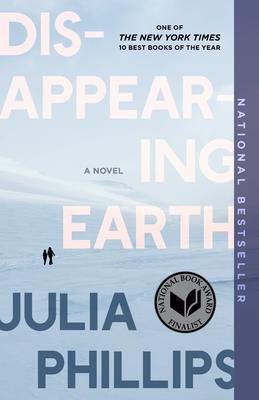
Disappearing Earth
By Julia Phillips
Published by Vintage
One August afternoon, two sisters—Sophia, eight, and Alyona, eleven—go missing from a beach on the far-flung Kamchatka Peninsula in northeastern Russia. Taking us through the year that follows, Disappearing Earth enters the lives of women and girls in this tightly knit community who are connected by the crime: a witness, a neighbor, a detective, a mother. We are transported to vistas of rugged beauty—open expanses of tundra, soaring volcanoes, dense forests, the glassy seas that border Japan and Alaska—and into a region as complex as it is alluring, where social and ethnic tensions have long simmered, and where outsiders are often the first to be accused. In a story as propulsive as it is emotionally engaging, Julia Phillips’s powerful novel brings us to a new understanding of the intricate bonds of family and community, in a Russia unlike any we have seen before.
